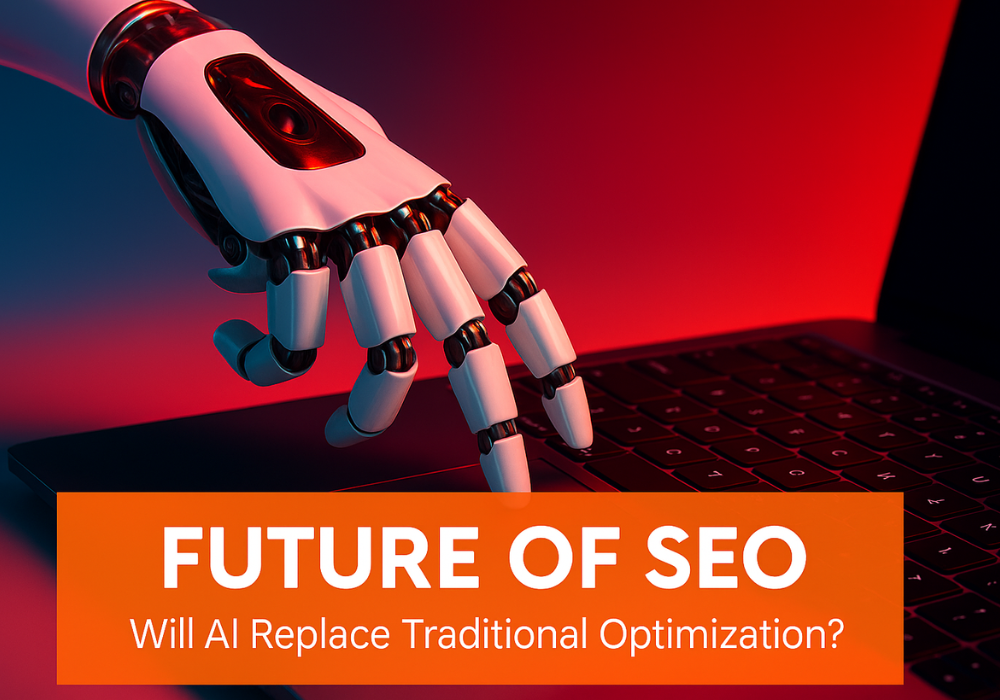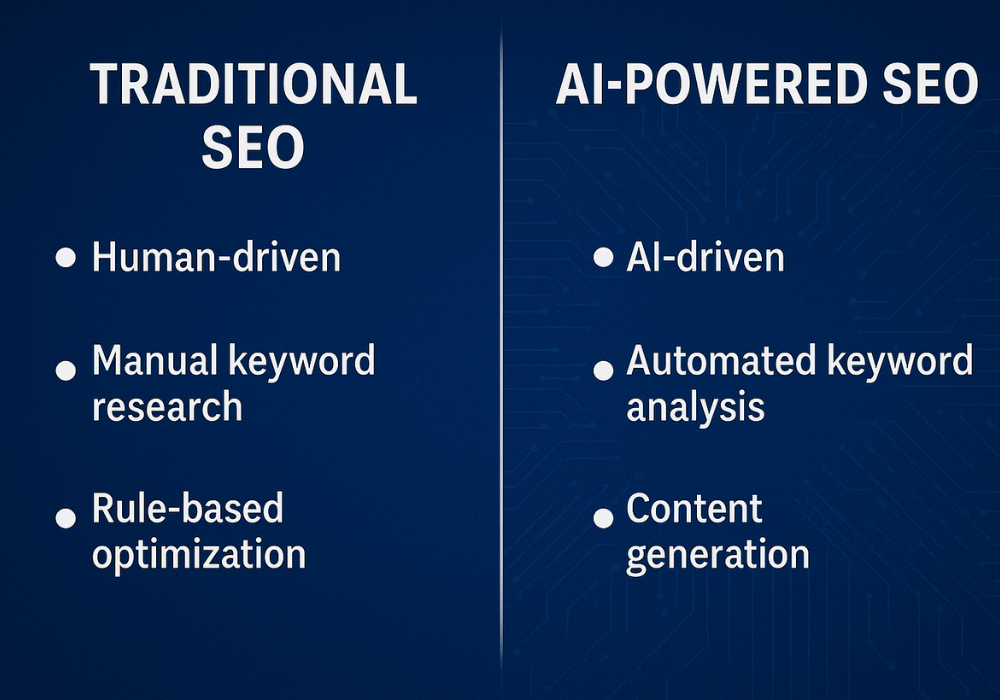Future of SEO: Will AI Replace Traditional Optimization?

The rise of Artificial Intelligence (AI) in digital marketing is no longer a novelty, it’s a powerful reality. From auto-generating blog content to analyzing search intent, AI tools are reshaping how marketers approach Search Engine Optimization (SEO). But one looming question continues to spark debate: Will AI replace traditional SEO?
We need to analyze the development of SEO, the part played by AI, and whether this shift is regarding replacement or change in order to understand the answer.
The Evolution of SEO: From Keywords to Context
Backlink counts, keyword stuffing, and on-page tactics that frequently benefited search engines more than people once dominated traditional SEO. However, Google’s algorithm has advanced. These days, user experience, semantic search, and excellent content that actually addresses user issues are the main priorities.
AI-based technologies, which are superb in handling large datasets, identifying search patterns, and understanding language patterns, have already been facilitated by this revolution. The manner in which SEO professionals conduct research, develop content, and measure outcomes is being totally revamped by tools such as ChatGPT, Jasper, Surfer SEO, and even Google’s own AI tools.
But does this mean AI can do the job without human involvement?

AI’s Strengths in Modern SEO
- Content Generation: These days, AI programs can generate ad text, blog entries, and meta descriptions in response to cues.
- Search Intent Analysis: Machine learning can help determine the actual meaning of user inquiries.
- Automation: One can speed up mundane tasks such as performance monitoring, keyword clustering, and website audits.
- Personalization: AI enables SEO to be more dynamic through the personalization of search results based on user activity, location, and device use.
These tools can increase productivity, save time, and produce insights that might otherwise take hours or even days for humans to discover.
But SEO Is Not Just Data, It’s Strategy
SEO is not merely technical efficiency, although machines can assist in content creation and repetitive tasks. It calls for creative content production, brand voice comprehension, strategic thinking, and empathy for the target audience—tasks that a machine just cannot perform.
For example, creating a long-term SEO plan still calls for knowledge of your audience’s journey, your company’s goals, and how content fits into each of them. Agencies are experts at developing customized SEO strategies that strike a mix between genuine brand messaging and technical optimization.
Collaboration Is the Future, Not Competition
The notion that AI will supplant conventional SEO is a misinterpretation of the nature of innovation. Consider AI as an extension of human potential and a collaborator rather than a replacement.
Adopting AI allows SEO specialists to work more quickly, do deeper analysis, and scale more intelligently—all while concentrating their efforts on the things that computers cannot: creating trust, delivering engaging tales, and employing creativity.
An era is upon us where human skill and artificial intelligence must coexist. Those who oppose this shift risk falling behind. But those who learn how to leverage AI while maintaining the heart and strategy behind SEO will thrive.
Final Thoughts: A New Chapter in SEO
So, will AI replace traditional SEO?
No, but it will redefine it.
Although the technologies are evolving, the objective is still to meaningfully link consumers with relevant and quality content. In the SEO landscape, artificial intelligence (AI) is the co-pilot that is assisting us as we move from mechanical optimization to intelligent support.
The future belongs not to AI or humans alone, but to the marketers who can unite both to deliver real value.